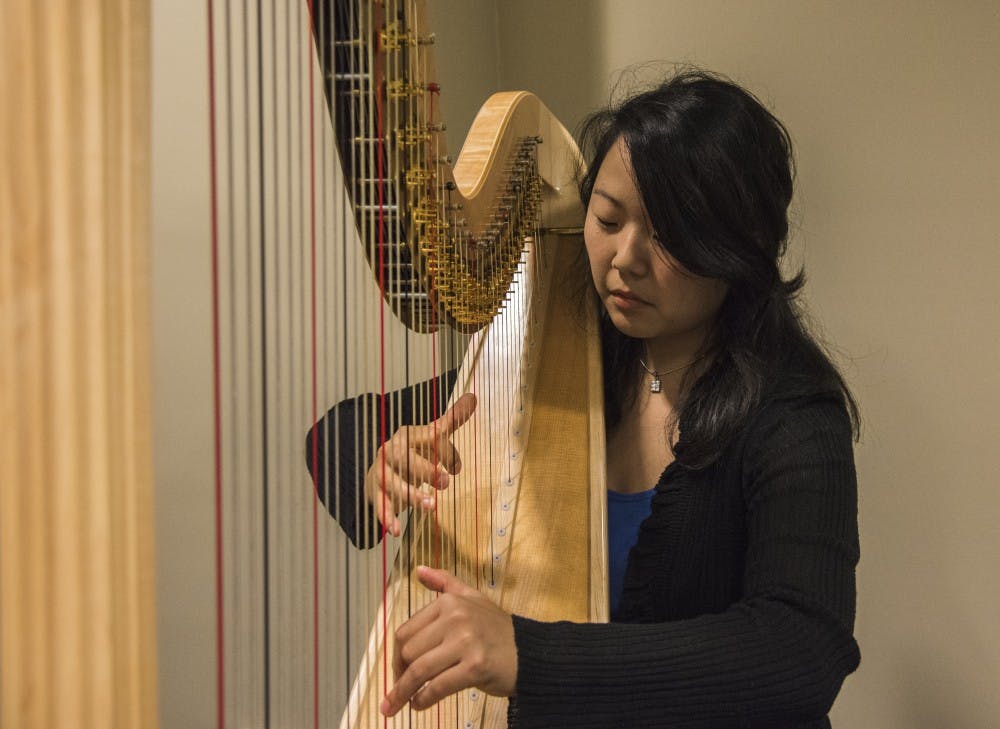When the stresses of college life get to Megan Bradford, a senior majoring in architecture, she runs over to the Music Instructional Building to practice the harp.
This is Megan’s second semester playing the instrument
“It is like an escape from [the Ball State University College of Architecture and Planning],” she said. “The harp is right here on campus. It is available all the time so I can just go practice and relax.”
Bradford is one six non-harp majors taking harp lessons for credit this semester. This opportunity has been offered since the mid 80’s said Elizabeth Richter, the harp professor and former Vice President of the American Harp Society.
Richter explained said that harp lessons are not offered at very many schools and that fewer offer harp lessons to the general student body.
“It is unusual for children and teenagers to have the opportunity to study the harp.Tthere are a few places where there are active programs,” she said.
Ball State still isn't the only Indiana college to offer harp lessons, however. Indiana University Bloomington has a harp department.
Harps are expensive instruments. A pedal harp costs as much as $105,000 and lever harp prices start at $3,900 on the website for Salvi Harps, Inc., a business that has been manufacturing harps since 1955. Ball State gives people like Bradford unlimited access to their harps—helping them curb that cost.
It’s a boon to Bradford who never played an instrument before starting harp. She would often tell people that it was her dream to play the instrument.
Last year, Bradford attended a bible study. She mentioned her aspirations to a harp major who told her to take harp lessons for credits.
Students who decide to take the class for credit will meet with either Elizabeth Richter or the graduate assistant, Joanne King, individually for an hour every week.
Students are expected to practice for at least 45 minutes every day of the week.
“I’ve kind of made it my mission to have people learn about the harp and it is enormously popular as a hobby because it is such a beautiful sound.” Richter said.
At the end of each semester, the students usually play in a concert in Sursa Hall.





